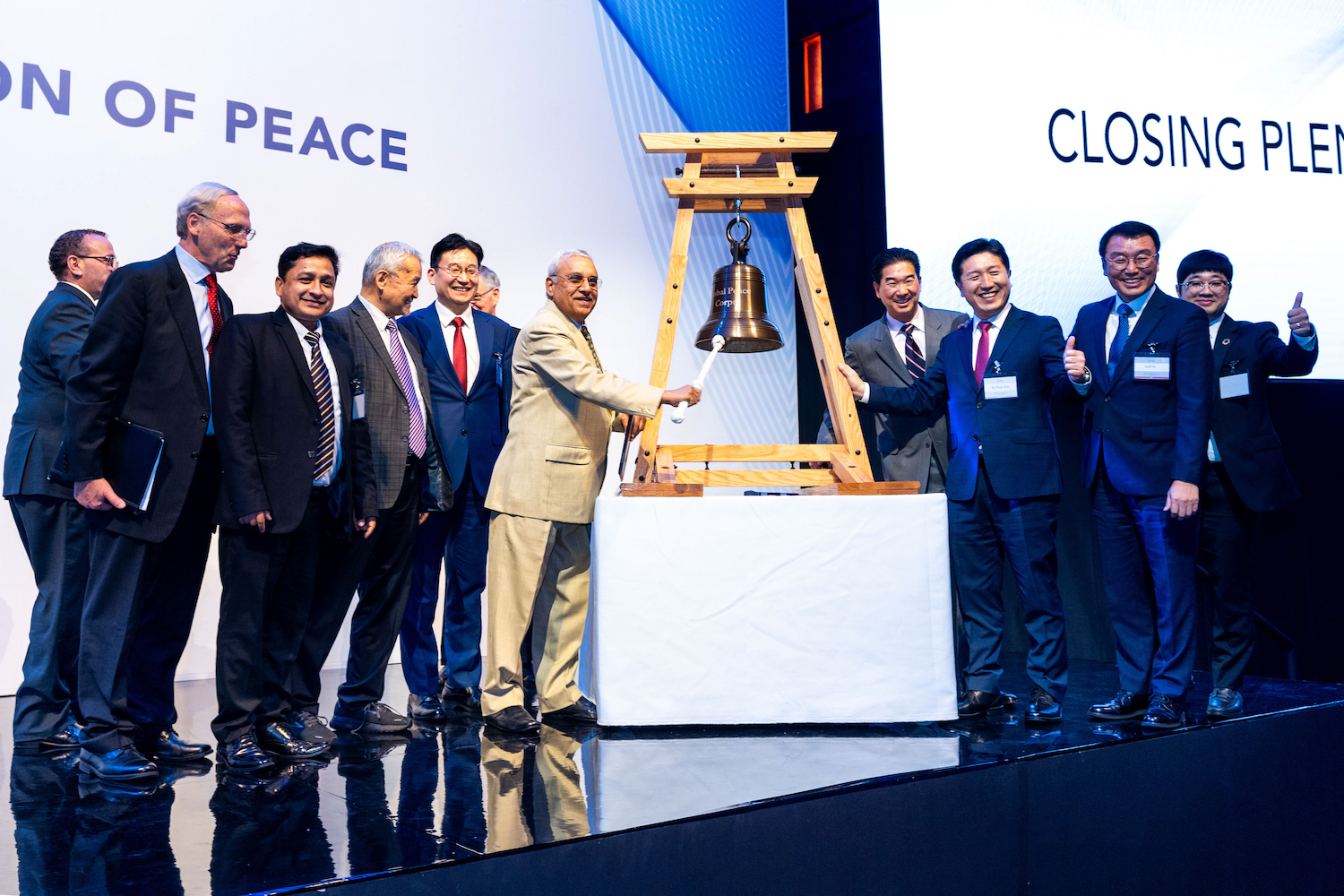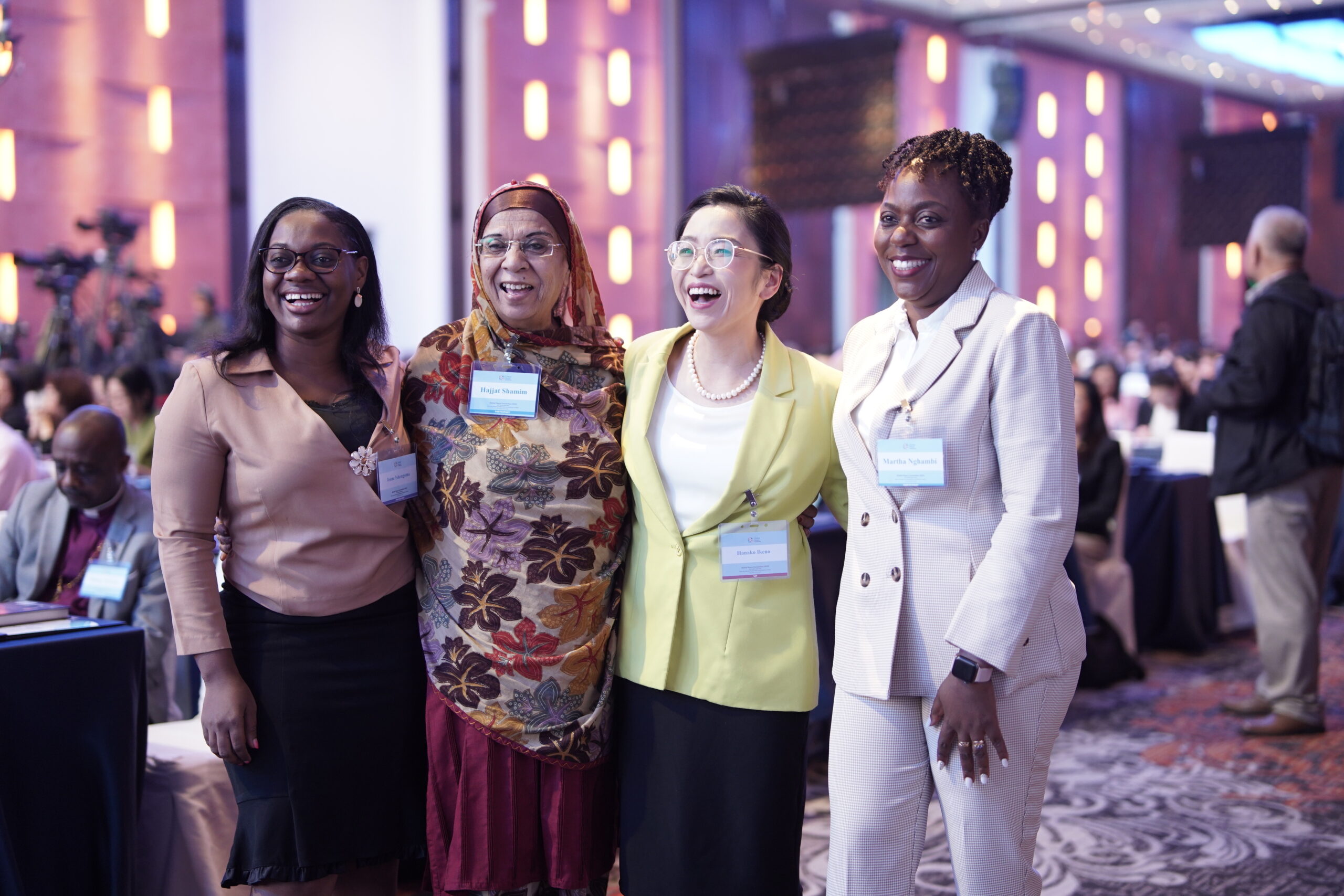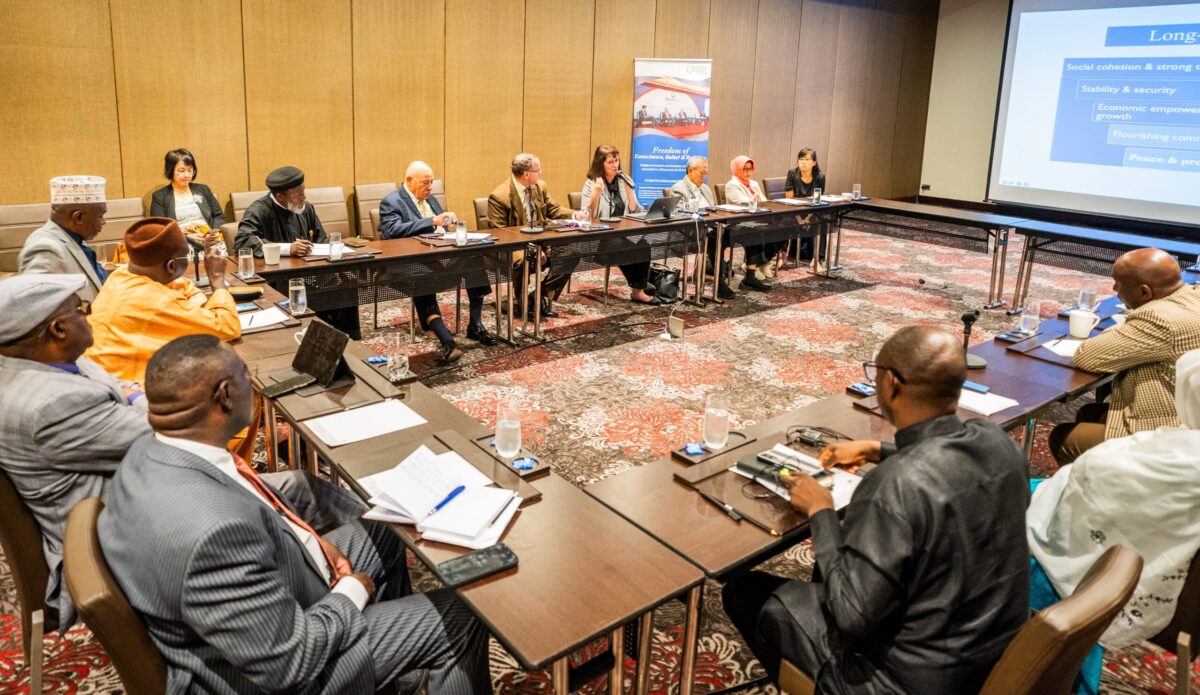The prospects for republican democracy in Latin America and the balance of freedom with responsibility were the topics of discussion among five former Latin American heads of state taking part in the Second Summit of the Latin American Presidential Mission in Asuncion, Paraguay.
Rafael Calderon, former president of Costa Rica, was elected in 1976, a period that marked the beginning of a great change across Latin America towards free elections and the spread of democracy. Other former presidents on the panel were Luis Alberto Lacalle of Uruguay, Carlos Mesa of Bolivia, Gustavo Noboa of Ecuador, and Eduardo Duhalde of Argentina. They all came to power during this era of greater democratization.
President Calderon was optimistic about the future, and did not think the return of dictatorships in the region likely. At the same time, he and his colleagues saw serious challenges that democratic governments had to meet.
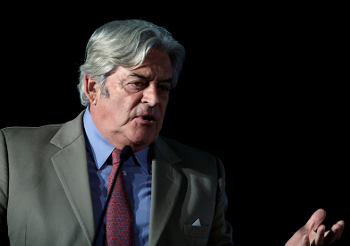
Former president of Uruguay, H.E. Alberto Lacalle asserts that universal rights have to be connected with poltiical realities.
President Lacalle highlighted the dangers of a political class with little sense of responsibility to the populace. He contrasted the role of citizen and taxpayer. The citizen exercised control over the government once every five years or so but the taxpayer had to hand over their money every year.
Those taxes are then spent by the people’s representatives with little oversight and accountability to voters. Officials often made empty promises to get elected. President Lacalle proposed that their performance should be measured publically against those promises at the end of a term of office.
He concluded that broad universal rights had to be connected to political realities. He pointed out that the lofty ideals proclaimed by the French Revolution were detached from those realities and led to extremism in the name of liberty.
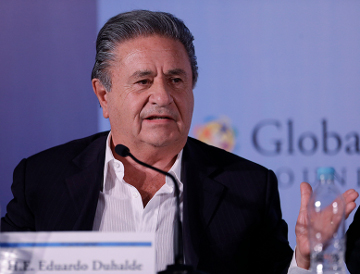
H.E. Duhalde, former president of Argentina says popular support of governments does not guarantee human rights
President Duhalde added that popular support for governments did not guarantee human rights and freedoms. He pointed out that Argentina’s governments between the two World Wars were popular and authoritarian and that Hitler had won election in Germany five times.
Democratic governments had to address the needs of the people effectively, said President Calderon, particularly the problem of poverty. In Costa Rica, 25 percent of the population lived in poverty. If that did not change people would begin to say, “Why do we need democracy? How is it helping us?” They would look to other forms of government.
President Calderon urged that Latin America learn from the Korean example of development out of severe poverty. The countries of the region had to ask how Korea did it and what factors prevent them from advancing as much. Education for opportunity would be a key for the future.
The Summit of the Latin American Presidential Mission is being held in conjunction with the sixth Global Peace Convention, Roadmap for National Transformation: Liberty, Prosperity and Integrity through Moral and Innovative Leadership. The Convention concludes on November 21.

